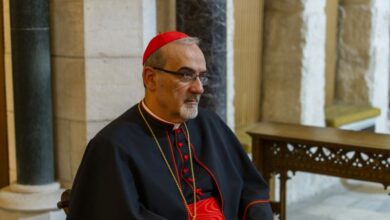Report reveals escalation of violence against Christians in the Holy Land
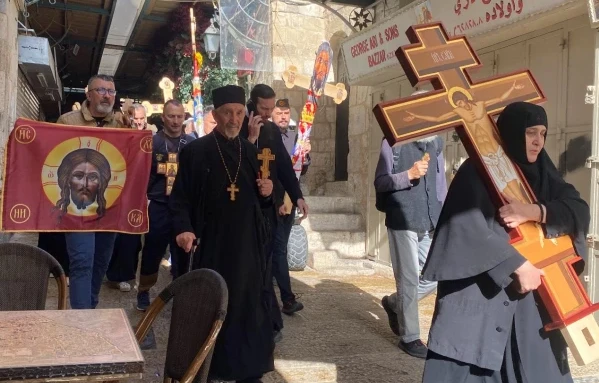
 Christians processing through the Old City of Jerusalem. / Credit: Adi Marer/Rossing Center
Christians processing through the Old City of Jerusalem. / Credit: Adi Marer/Rossing Center Vatican City, Apr 14, 2025 / 16:02 pm (CNA).
The annual report by the Rossing Center, a Jerusalem-based organization dedicated to interfaith coexistence, documented 111 cases of harassment and violence against the Christian community in Israel and East Jerusalem in 2024.
The report revealed a climate of hostility that, according to one of the study’s authors, Federica Sasso, only represents “the tip of the iceberg of a much larger phenomenon.”
“Many more attacks occur, but they are very difficult to monitor,” she told ACI Prensa, CNA’s Spanish-language news partner.
She also noted that the Holy Land “has currently been devoid of Christian pilgrims” due to the war unleashed after the Hamas attacks on Oct. 7, 2023, which somewhat mitigates the situation.
“If we were in a normal period of the flow of pilgrims, the number of attacks would probably be much higher,” she explained.
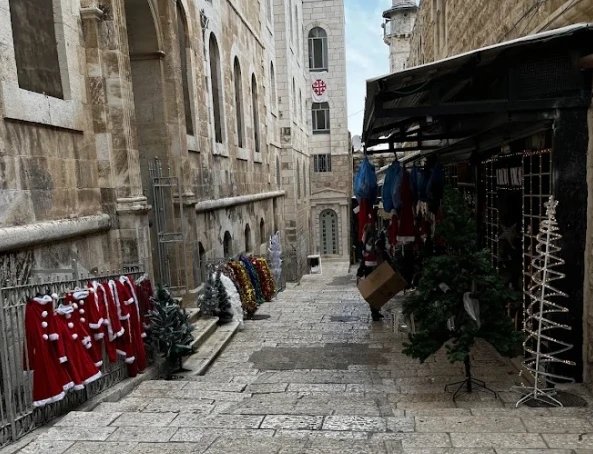
Sasso, who attributed the situation in part to the “growing polarization and radicalization within Israeli society,” emphasized that, although there is some widespread skepticism regarding the effectiveness of making a report, the center is observing a positive trend as religious “are increasingly willing to report incidents.”
Partly due to a “proven track record of dismissing them or releasing suspects without appropriate consequences,” they preferred not to make it public, she said.
47 physical assaults, mostly spitting
Of the 111 reported cases of assault, 47 were physical assaults primarily through “spitting,” a behavior that has evolved from subtle acts to openly aggressive displays. In several areas, especially in the Old City of Jerusalem, priests, nuns, friars, and monks “being easily identified are exposed to these attacks on a daily basis,” Sasso explained.
According to the report, Christians have reported a “further increase in the frequency and aggressiveness of such episodes [spitting], and, according to the testimonies compiled, priests and nuns living in certain areas of Jerusalem … now face an almost certain risk of experiencing this type of harassment every time they go out.”
In addition to harassment and spitting, the Rossing Center has certified other violations of the right to religious freedom. For example, Christian religious leaders have been told to remove crosses from public spaces.
The identified attacks include incidents of physical aggression such as spitting, direct assaults, and vandalism against churches and monasteries as well as cases of verbal harassment, which has left the Christian community feeling “increasingly threatened in their own homes,” Sasso said.
Last year, 35 cases of vandalism and desecration in churches and monasteries were documented, including graffiti on church walls, stone throwing, arson, and defacing Christian imagery. In one particularly serious case, a Catholic retreat house in northern Israel was reported to have been raided, an incident in which “sacred objects were damaged and replaced with Jewish religious objects,” according to the report.
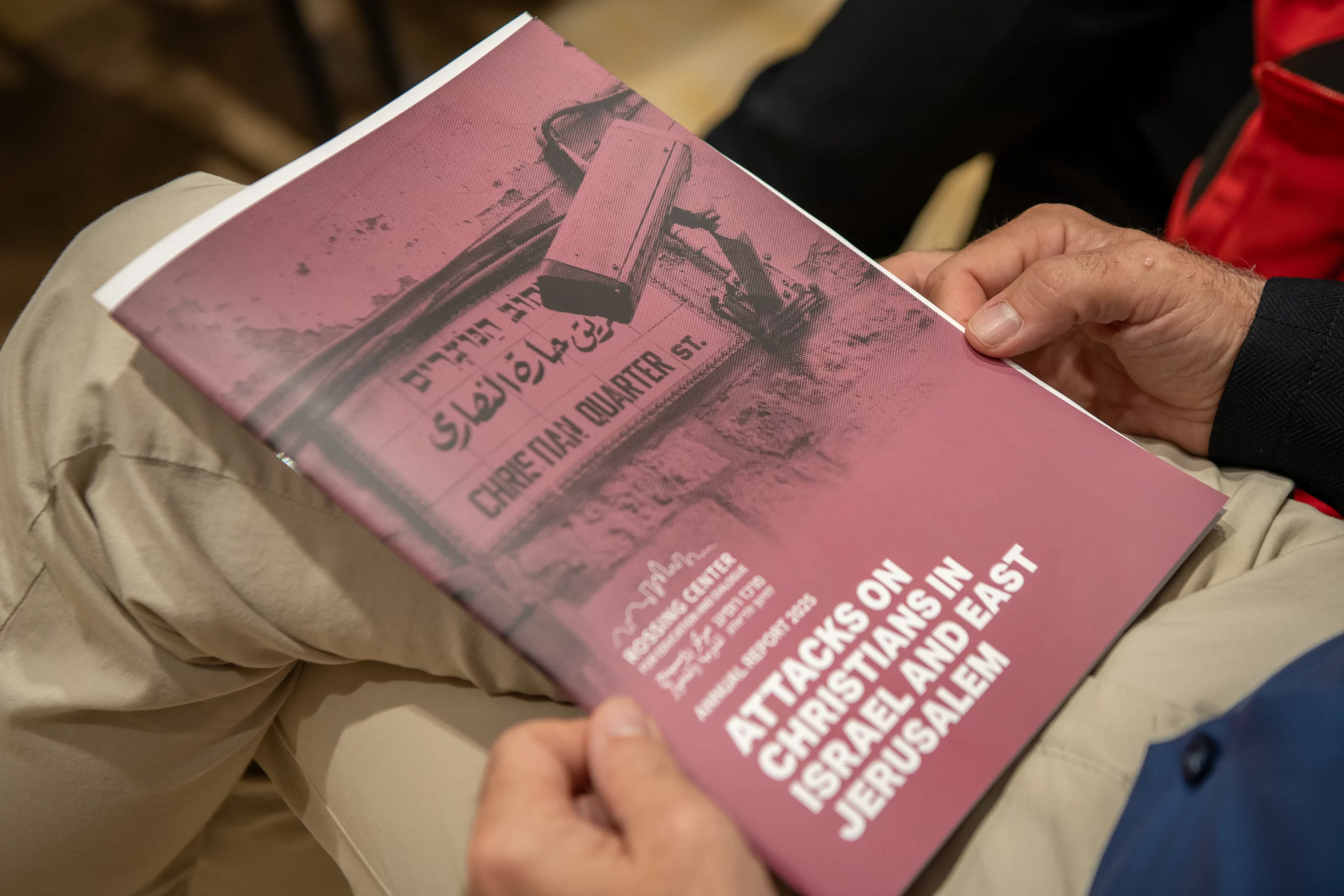
The report notes that responsibility for these acts falls exclusively on individuals identified as Jewish, “primarily young men from ultra-Orthodox and national-religious circles.”
According to the investigation, the climate of radicalization is motivated by “a mixture of nationalist fervor and religious extremism” that drives these groups, especially within the Hardal movement, the ultra-Orthodox Jewish sector with a nationalist tendency.
The report also cites ignorance of Christianity or prejudice as a reason. In this regard, Sasso pointed out that this is one of the underlying problems in the historical background of Jewish-Christian relations forged over millennia.
“Israel is the only place in the world where Jewish-Christian relations are completely different from those we have in the West; that is, it is the only place where the Jewish population is the majority and Christians are the minority, so it is a completely inverted minority relationship compared to the West,” she explained.
This context contributes to the continued perception of Christianity among Israeli Jews, which is characterized by “certain stereotypes that have been perpetuated even in school curricula.”
That’s why the report’s recommendations make it clear that education is truly essential. “It’s necessary to explain that Christianity is, above all, a religious identity, which must be separated from the historical memory of the Shoah [Holocaust],” Sasso added.
Almost half of Christians under 30 want to emigrate
Beyond the episodes of physical violence, the daily harassment of the Christian community has had a devastating effect, creating a feeling of insecurity and abandonment.
The data show that “pressure” is becoming increasingly evident and has caused nearly 48% of young Christians under 30 to consider emigrating. Of these, 77% attribute their decision to “increasing discrimination and violence” exacerbated by socio-political instability.
In an environment where Christians, who represent just 1.8% of the Israeli population and a modest 4% in Jerusalem, feel increasingly marginalized, the study warns of the possible permanent erosion of their religious rights and freedoms.
In fact, the Rossing Center report warns of their progressive “Judaization” through new settlement policies such as “the plan to build 11,500 housing units in East Jerusalem.”
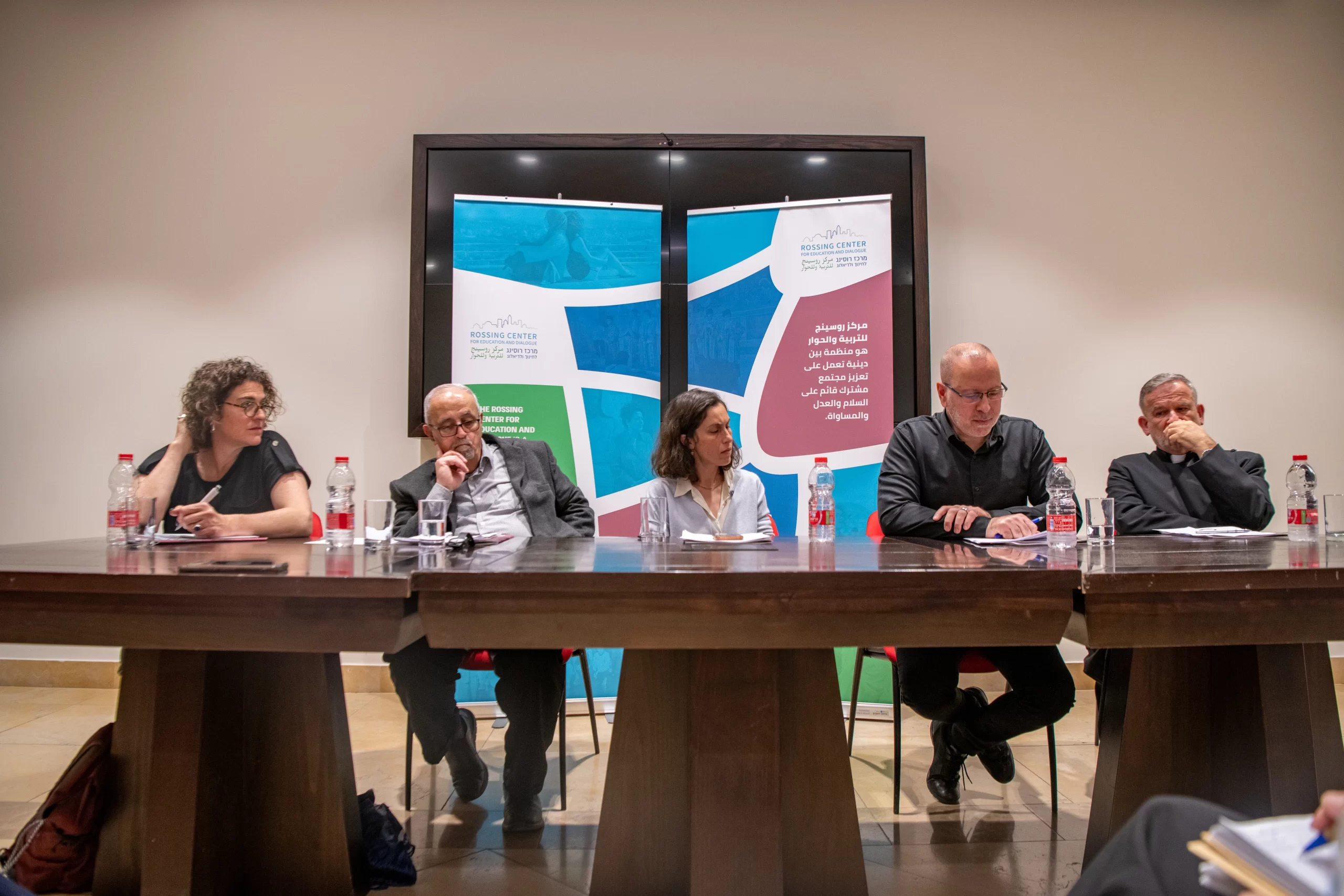
According to the report, minority religious denominations also suffer from taxation policies because, although their places of worship benefit from them, their schools, youth centers, and pilgrim hostels are not exempt. Jewish ones are. This has led to numerous disputes between Christian communities — especially the Custody of the Holy Land — and municipal authorities.
In addition to other factors, the Rossing Center report warns of another problem in northern Israel. Organized crime there committed 230 murders last year, particularly affecting Christians in Galilee, who are known for being particularly law-abiding but lack state protection from crime.
The analysis concludes that, without strong measures to promote inclusion and respect, the historic Christian presence in the Holy Land could experience a “significant” decline in the coming years, affecting not only the local community but also the interfaith dynamics in the region, with global repercussions.
This story was first published by ACI Prensa, CNA’s Spanish-language news partner. It has been translated and adapted by CNA.



